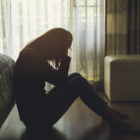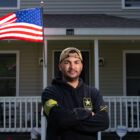I-Team In-Depth
Winning Over Skeptics: More Police Departments Enlist Social Workers For Crisis Intervention
|
The 911 call came in from a parent whose son was threatening to kill himself. Typically, a police officer will race to a call like this, assess and stabilize the situation, and most likely request an ambulance to take the child away, leaving the family to pick up the pieces. In Milford earlier this year, that didn’t happen. Instead, the officer first summoned his colleague Caitlyn Cimmino, a licensed clinical social worker employed by the police department, and the pair dashed off together. After the officer entered the home and ensured that the situation was safe, he invited Cimmino in to take over from there.








